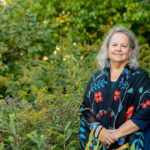David M Clarke (Twitter: @dcSWer)
Introduction
I joined the academic workforce as a Lecturer in Social Work in September 2020, in the midst of the COVID-19 pandemic, straight from a busy children and families social work setting. I plan to write a more about this transition in another ‘story’. In the meantime, I thought I would reflect on my role as a Personal Tutor in providing pastoral support to university students during the global crisis.
Specifically, this story will outline some of the ways I tend to structure what I term ‘supportive discussions’ with students in times of difficulty.
Who is this for?
- Educators- as a means of connecting my experience to yours, whether this resonates, or diverges from your own
- Students (all academic programmes)- for those who haven’t reached out for support, or who feel unsupported at a time of significant challenge
- Myself and anyone else- as a personal artefact of the pandemic, highlighting the often unseen role of university lecturers and challenges students face
Context
The majority of students enrolled on the social work programme that I support did not sign up for learning in the backdrop of the COVID-19 pandemic. Rather, they have been forced to adapt (with vastly varying levels of ‘success’) to learning in an online environment. Additionally, the pandemic has been synonymous with loss of life and general detriment to human wellbeing. Many students have experienced mental health crises, deaths of loved ones, physical health issues (including contracting coronavirus), financial issues (due to loss of part-time work), and increased responsibilities in caring capacities, particularly as schools and childcare provisions have closed. Some further specific challenges faced by students during the pandemic have been:
- Lack of immediate support from peers and educators due to working remotely
- Loss of spaces (e.g. classrooms; library; cafes etc) that have traditionally hosted student learning experiences, particularly promoting participative learning
- Procrastination due to loss of accountability (e.g. to attending lectures in person; to groups/peers)
- Struggling with work-life balance (e.g. paid employment; caring responsibilities)
- General anxiety about COVID-19 and restrictions on activities promoting wellbeing
As a result of such challenges, some students have contacted me to ask for a discussion about their studies, or have taken up offers of such when I have emailed them (as I do periodically in my role as a Personal Tutor to many students across all undergraduate year groups).
What does a supportive discussion entail?
This story does not profess to provide a model or framework for how such encounters should be structured, but rather to outline how I tend to do so.
It important to me to reflect that every encounter feels (and is) unique, and I respect each as such. I feel privileged to be in a position to support students, particularly in times of crisis. However, I find having a framework in my mind helps me to most effectively balance the need to provide students with a calm, safe and supportive space, while guiding discussions towards support planning.
Here is what I try to ensure happens during a supportive discussion:
- Ask and listen: Most students are understandably nervous at the beginning of supportive discussions, and I find it’s important to allow them time to articulate what they are feeling and avoid the temptation to correct, or help the students form words. For many students, particularly given the dilution of support networks over the past year, this might be the first time they have expressed their feelings, frustration, stress and anxiety aloud. Start by asking an open-question (similar to Motivational Interviewing) to kick things off e.g. “So what has brought you here?” or “What were you hoping to discuss today?”. It is often on students hearing their words for the first time that they experience a flooding of emotion. I try to avoid ‘fixing’ or shutting down these emotions- while remaining empathetic, I am keen for students to work through what they’ve been holding on to, to the point that they can name what they are feeling, and (if possible) why. Sometimes this takes a number of questions to clarify.
- Reflect and imagine: After the student has established the cause(s) of difficulty or challenge, it’s tempting to jump into devising a plan to mitigate against the barriers they face. I try to avoid this and instead ask the student to reflect upon why they entered the programme in the first place, and what they hope to do in the future with their degree. (Re)connecting students with their motivation for starting a degree and then situating them in their future lives hopefully provides a cathartic context to their current difficulties. Social workers often enter the profession for altruistic reasons and it’s easy for students to lose sight of what motivated them in as they started out, as the uncertain nature of the pandemic has resulted in many of us living day-by-day with a sense of inescapability from the smothering restrictions placed on us.
- Self-care check: I then ask students to reflect on the extent to which they are being kind to themselves and who they identify as being in their support network. I frame this by asking “How do you show yourself that you care about you, and who is in your life telling you that you’re awesome?”. Through this discussion, students and I explore issues in respect of healthy sleep, work-life balance, sources of relaxation (walking; naps; mindfulness and suchlike), caring responsibilities and the importance of self-care, both in social work practice and in academia. Students are often good at identifying where they could take practical steps to be more kind to themselves, and utilise their support networks more effectively.
- Acknowledging the impact of COVID-19: Many students have high expectations of themselves. In my experience, social workers, and social work students have an almost inherent trait whereby they find it easier to be self-critical than give themselves credit for a job well done in difficult circumstances. At some point in supportive discussions with students, I ensure that we reflect upon just how disruptive and traumatic the COVID-19 pandemic has been on us all, and ask students to consider whether they should, in fact, be a little more proud of themselves for progressing under such terrible conditions. It is obvious, yet understated that undertaking a degree during this global crisis is hugely difficult and presents often insurmountable challenges, and I try to support students to acknowledge this as a means of encouraging them to give themselves a break.
- Plan, summarise, check-out and check-in: Once students have been able to make some sense of their experiences and identify factors impacting on these, I ask if we can move the discussion towards planning. Through the course of the discussion, I take mental notes of areas where I feel the student might benefit from support, and in acknowledging limitations in my own expertise, also note who might be best placed to help. I start the planning discussion by outlining the availability of services, such as the Student Wellbeing Service (for health and wellbeing), the Library service (for accessing learning materials), the Learning and Development Centre (for practical academic support), in addition to external services (such as GP and therapeutic support services). From there, I ask students to recap what they feel would be most of use to them and who could support them with this. I find that students are remarkably efficient at this, and often I do not have to offer suggestions in this regard. To finish, I summarise what we discussed, check how the student felt the supportive discussion went for them (the check-out), before advising them to take some time (the rest of the day if possible) to practise self-care. I finish the supportive discussion some 2–3 days later by sending students an email to check-in with how they are doing. In most cases, students have been proactive in following their plan, including making referrals to support services where appropriate for them.
Conclusion
COVID-19 has had a significantly detrimental impact on student wellbeing and confidence. This has required educators to respond through the provision of enhanced pastoral care. This story reflects on how I tend to guide supportive discussions with students through providing a safe and supportive space to share their experiences, reflect on the reasons for entering the qualifying degree programme and aspirations for the future, and encouraging students to draw upon their strengths and sources of support as a means of managing stress and anxiety.
This story hopefully helps to connect with other educators’ experiences of providing support to students, or with students who may be provoked to think about some of their own wellbeing needs, or at the very least prompted to reflect on the scale of their success in progressing in academia under very difficult circumstances.
Reflective questions:
- Have you provided or received support to/as a student during the pandemic? What went well, and what could have gone better? Why?
- What aspects of support were provided and were they similar to what is covered in the story?
- What is the main thing you’ve learned from the story?







